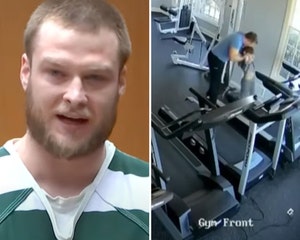A Pennsylvania Judge Rules Justin Mohn Competent to Stand Trial in Beheading Case
After previously being diagnosed with schizophrenia, Justin Mohn’s mental health status was reevaluated, leading to a new diagnosis of delusional disorder. Despite these changes, he has been deemed competent to stand trial for the beheading death of his father and the subsequent posting of a disturbing video “manifesto.”
Last week, Judge Stephen Corr declared Mohn mentally fit to face trial in Doylestown. The decision followed a lengthy five-hour proceeding that involved testimony from multiple witnesses. Additionally, Mohn’s request to switch attorneys was granted during the hearing.
Dr. Kelly Chamberlain, a prosecution witness, described Mohn as intelligent, calm, and socially appropriate. She revealed that Mohn objected to using mental health as a defense, insisting he was acting in his own self-interest. However, Dr. John Markey, who previously diagnosed Mohn with schizophrenia, maintained that Mohn’s behavior was delusional.
Markey highlighted several letters in which Mohn claimed to be a messiah-like figure persecuted by the government. Mohn allegedly believed his attorney was a federal agent and even sought refuge in Russia, claiming ties to the country’s leadership.
YouTube/Bucks County DA
Chamberlain disputed some of Mohn’s claims, suggesting they were misinterpreted. She acknowledged potential delusions but emphasized that his letters followed a common theme. Despite conflicting testimonies, Mohn’s competency for trial was upheld.
In February, Mohn was arrested for the murder of his father, leading to shocking revelations about the crime. District Attorney Jennifer Schorn disclosed that the victim, Michael Mohn, was found decapitated at their residence in Middletown Township.
Footage posted on YouTube depicted Justin holding his father’s severed head, accompanied by extremist messages. The video, titled “Mohn’s Militia,” called for violent actions against government officials. Authorities tracked Justin to a military base after the video gained widespread attention online.

Clermont County Sheriff’s Office/Facebook
Authorities detailed Justin’s actions leading up to the crime, including the legal purchase of a firearm. He apparently surrendered his medical marijuana card to obtain the weapon, showcasing his premeditation.
Mohn’s disturbing online manifesto and subsequent actions raised concerns about his mental state. However, investigations revealed no prior history of diagnosed mental health issues, indicating this incident was an aberration.
The case underscored the importance of monitoring individuals displaying troubling behaviors, even if no immediate criminal actions are evident. The tragedy highlighted gaps in mental health evaluations and legal firearm purchases.
Justin Mohn now faces multiple charges, including first-degree murder and abuse of a corpse. The legal proceedings and testimonies shed light on the complexities of mental health and legal accountability in cases of extreme violence.

Law&Crime
The tragic events involving Justin Mohn serve as a stark reminder of the critical intersection between mental health and criminal justice. As society grapples with addressing the complexities of mental illness, cases like Mohn’s highlight the need for comprehensive support systems and vigilant monitoring to prevent such devastating outcomes.
For more news on trending topics like this, visit DeFi Daily News.
In conclusion, Justin Mohn’s case presents a chilling glimpse into the depths of delusion and violence that can arise from untreated mental health conditions. The tragic events surrounding his father’s murder and the subsequent online manifesto underscore the need for improved mental health resources and early intervention strategies to prevent such catastrophic incidents.
As the legal proceedings progress, questions around accountability, the intersection of mental illness and criminal behavior, and the role of societal support systems will continue to be explored. Justin Mohn’s story serves as a sobering reminder of the complexities and ramifications of untreated mental health issues, shedding light on the urgent need for comprehensive mental health initiatives and community awareness.



















